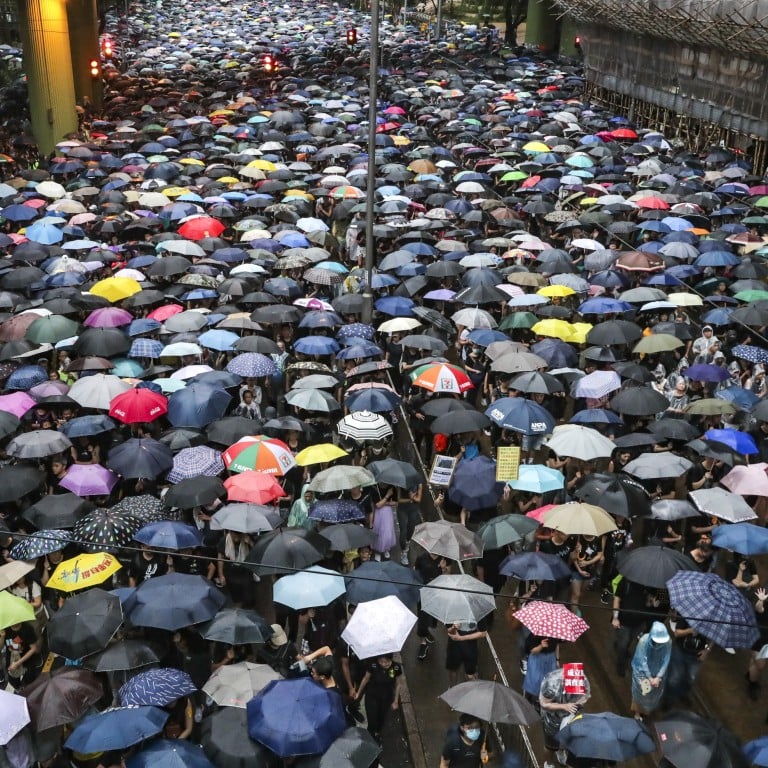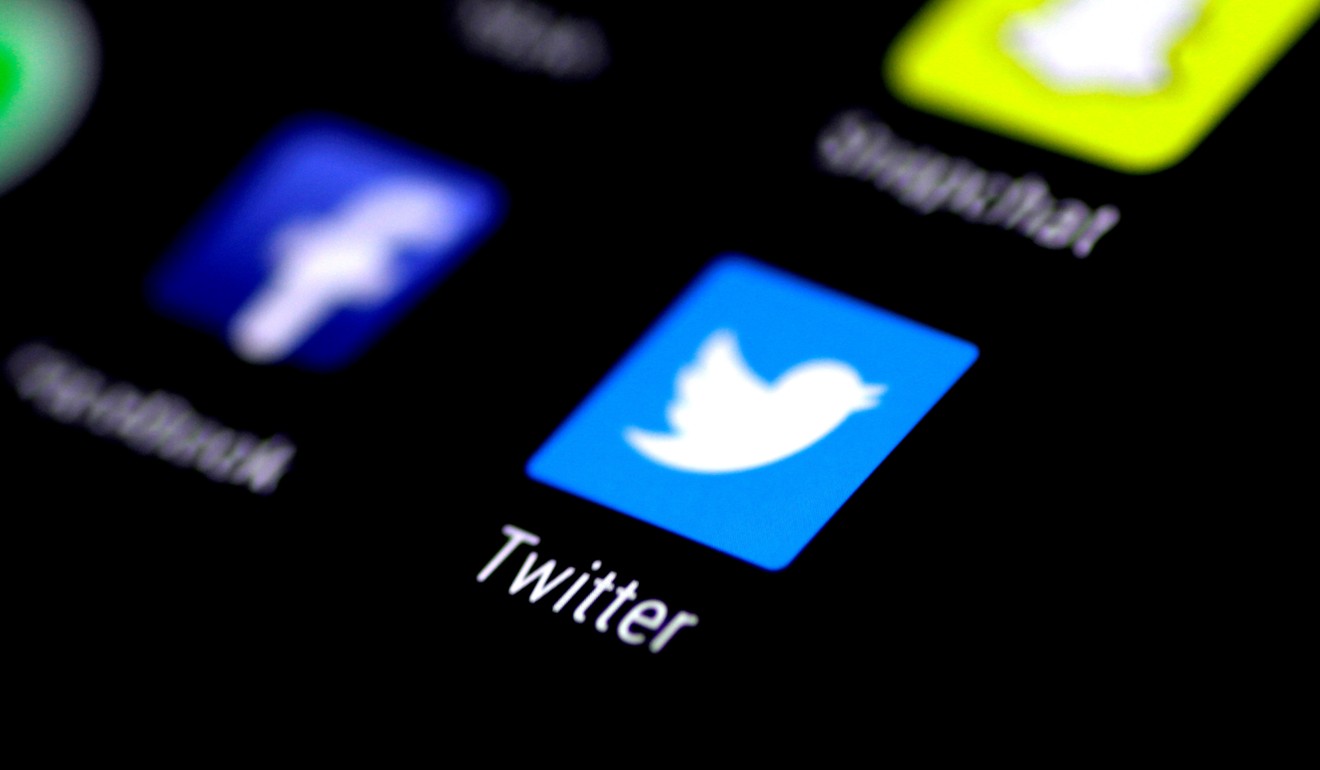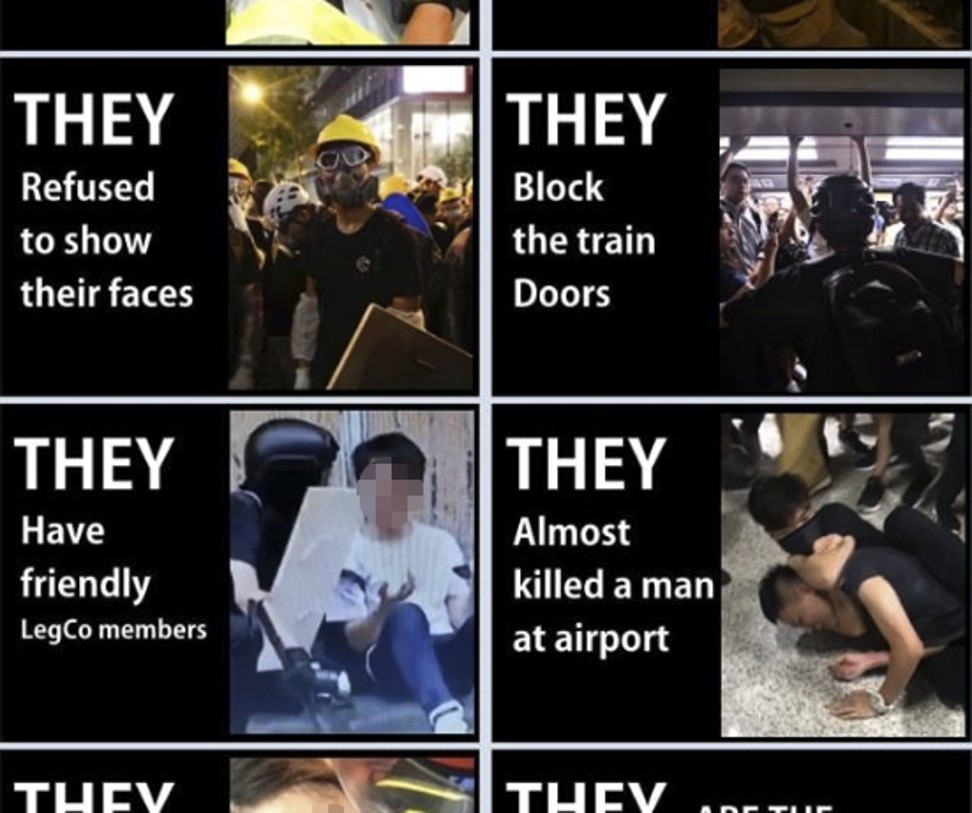
Hong Kong protests become flashpoint in information war between China and US
- Twitter and Facebook suspend accounts on their platforms they allege are part of state-backed disinformation campaign on events in the city
- Chinese foreign ministry hits back at Twitter’s move to stop accepting advertising from state-run media outlets
The San Francisco-based company also announced, in a separate statement, that it would no longer accept advertising dollars from state-controlled media outlets.
Chinese foreign ministry spokesman Geng Shuang hit back at that move, saying it was legitimate for media to engage with overseas audiences through social media. “I don’t know why some companies or individuals are so vehemently opposed to this, maybe it’s because what they did touched on sore points,” he said.

While China and the US remain locked in a protracted trade battle, both sides are also engaging in an intense information war trying to shape public opinion to their advantage. US President Donald Trump, for instance, has frequently used Twitter to accuse Beijing of backtracking on trade commitments despite repeated denials by the Chinese side. Earlier this week, a tweet by Trump urging President Xi Jinping to meet Hong Kong protesters was dismissed by Chinese foreign ministry spokeswoman Hua Chunying, who said Trump should honour his own words instead.
The accounts suspended by Twitter and Facebook on Monday were not linked to China’s state-run media organisations. Rather they were part of a network of fake accounts whose described tactics appear akin to the Russian misinformation campaigns coordinated to sway American public opinion in the lead-up the 2016 US election.
“China is copying Russia and has set up a large number of accounts on Facebook and Twitter to pump out anti-protester propaganda filled with factually untrue statements and pictures. [Such accounts are] an attempt to polarise opinion, which Twitter and Facebook have publicly stated they don’t want to do, so they are acting on their new policies,” said Victor Shih, a professor at the University of California, San Diego’s School of Global Policy and Strategy.
Withdraw Hong Kong’s extradition bill, head of police watchdog says
He noted that the platforms had tightened regulations following “blowback” after the 2016 poll.
“They increased the level and awareness and [changed] the algorithm that they are using to catch manufactured campaigns for a political end, especially a violent political end,” Shih added.
Facebook on Monday removed seven pages, three groups and five accounts involved in “coordinated inauthentic behaviour as part of a small network that originated in China and focused on Hong Kong”.
Twitter suspended 936 such active “coordinated state-backed” accounts originating from China, where Twitter is banned, part of a “spammy network” of 200,000 accounts that were shut before they became active.
When asked to clarify how its investigation had determined a connection to the Chinese government, a spokeswoman for Twitter referred to its findings that some of the accounts had been gaining access to Twitter without the use of VPNs. For ordinary citizens in China, virtual private network apps or routers are necessary to leap over the country’s Great Firewall, which limits access to the internet. But specific official IP addresses within the country are not restricted by the firewall.
Among the 936 Twitter accounts, 59 per cent of them had fewer than 1,000 followers, and 10.7 per cent had no followers. Some 20 per cent of them self-reported as being from the United States.
Carrie Lam commits to ‘creating a platform for dialogue’ but again dismisses calls for independent inquiry into police
But the company did not use its hateful conduct policy, which polices content based on its use of dehumanising imagery, hate symbols or calls to violence, in banning the accounts.
Instead they were suspended based on violations of platform manipulation policies, which include use of fake accounts purporting to be from reliable sources, coordinated activity where one entity is marshalling accounts for a shared purpose, and spamming.
On Facebook, accounts were removed for similar behaviour. Examples of the “coordinated inauthentic behaviour” identified by Facebook included posts that compared protesters to cockroaches, accused journalists of corruption and of colluding with “rioters”, and claimed that protesters, not police, had been responsible for the widely reported injury of a woman who may lose sight in one eye.
Facebook said it decided to take down accounts related to the Hong Kong protests because they were associated with the Chinese government, rather than over the content they posted.
A company spokesman said Facebook had used a mix of technology and investigative work to determine the accounts were associated with individuals linked to the Chinese government, and were using deceptive tactics – including fake accounts to disseminate content – in a coordinated effort.
“We’re constantly working to detect and stop this type of activity because we don’t want our services to be used to manipulate people,” the spokesman said. “We’ve taken down these pages, groups and accounts based on their behaviour, not the content they posted.
“As with all of these takedowns, the people behind this activity coordinated with one another and used fake accounts to misrepresent themselves, and that was the basis for our action.”
On the mainland, some see the banned accounts and media policies as a specific dart targeting China.
“The confrontation between China and the United States has entered into the realm of information,” said Liu Weidong, a China-US affairs expert from the Chinese Academy of Social Sciences.
“The US side used to believe that information warfare was its advantage. Now they find that the tariffs [on Chinese goods] are not enough, so they will try and develop any advantage to exert pressure on China, diplomatic warfare, academic warfare, financial station and even social warfare,” he said.
“The question now is whether Twitter’s actions are its own decisions or those made under pressure from the US government.”
Lokman Tsui, an assistant professor at Chinese University of Hong Kong, disagreed.
“In this case China is singled out, but this is nowhere near them picking on China and China only,” Tsui said. “There is a much longer conversation on disinformation in general, where specifically governments are behind the campaigns,” he said, pointing to the global epidemic of fake news.
Additional reporting by Catherine Wong, Kristin Huang and Kinling Lo




